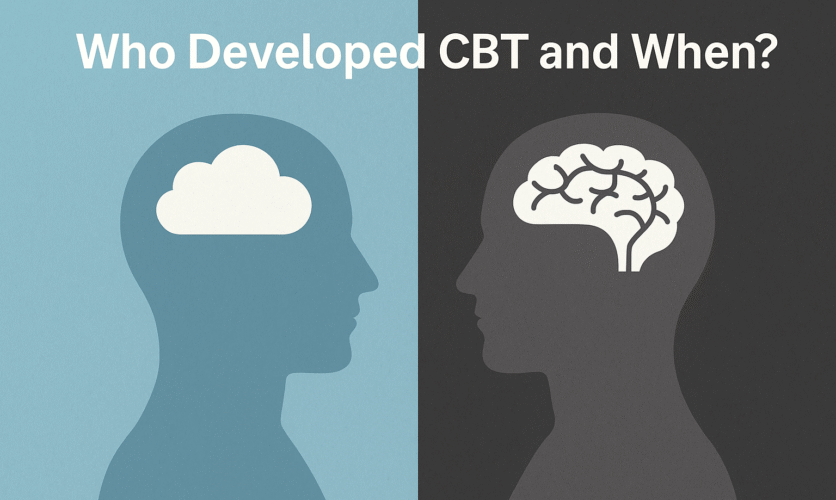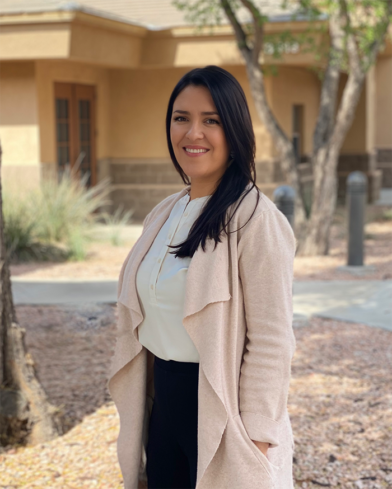
Cognitive Behavioral Therapy in Scottsdale
Cognitive Behavioral Therapy (CBT) in Scottsdale, AZ
Are your thoughts getting the best of you?
Do you find yourself stuck in a loop of negative thinking, worrying constantly, expecting the worst, or doubting your ability to cope?
Maybe you’re exhausted from second guessing everything you say or do. You feel paralyzed by self doubt, or overwhelmed by anxiety that seems to have no clear source.Or perhaps depression has dulled your sense of motivation, leaving you wondering if life will ever feel fulfilling again. You’re not alone and there’s a proven path forward.
Why Scottsdale Residents Choose Pathways Counseling Services for CBT
At Pathways Counseling Services in Scottsdale, we provide CBT that helps gain control over anxiety, depression, trauma and negative thinking. Our structured, research, backed approach empowers clients with practical tools to reshape their mental patterns and regain emotional clarity.
Clients benefit from CBT’s structured, goal-oriented approach, which provides practical strategies to manage emotional stress, trauma, and major life changes.
Each session is tailored to your goals so you can feel more grounded, confident and in control of your daily life. Cognitive Behavioral Therapy empowers you to take control of your thoughts and emotions.

Researchers have extensively studied CBT, confirming it as one of the most effective forms of psychotherapy. It is designed to help people recognize and change harmful thinking and behavior cycles.
Our Scottsdale therapists use CBT techniques that are tailored to each client’s goals so you can build healthier coping skills, gain emotional clarity, and improve your daily life.

what is CBT?
Cognitive Behavioral Therapy is an evidence-based form of talk therapy that focuses on the relationship between thoughts, emotions, and behaviors.
It helps individuals identify distorted thinking patterns, challenge negative beliefs, and develop healthier ways to cope with life’s challenges.
CBT teaches that our thoughts directly impact how we feel and act. When clients identify unhelpful patterns and actively reframe them, they gain greater emotional control and achieve meaningful behavior change.
This type of therapy is used to treat a wide range of mental health concerns, including:
- Anxiety
- Depression
- PTSD
- Obsessive-compulsive disorder (OCD)
- Phobias
- Panic disorders
- Relationship and communication issues
Structured, goal-oriented, and typically short-term, CBT is a practical option for Scottsdale Clients seeking lasting results without committing to years of traditional therapy.
Who Developed CBT and When?
CBT was born from decades of psychological insight and research.
In the 1960’s two pioneers Albert Ellis and Aaron T. Beck transformed the mental health field by challenging the idea that emotions just “happen to us”.
By the 1980s, CBT gained recognition as a leading treatment for anxiety and depression.
CBT evolved with contributions from Albert Ellis and Aaron T. Beck. Ellis emphasized irrational beliefs, while Beck focused on cognitive distortions leading to depression.
By the 1980s, CBT was widely accepted, marking a turning point in treating mental health disorders.
A Collaborative Evolution
CBT has continued to evolve since its origins in the 1960s, expanding through ongoing research, clinical innovation, and real world application.
Over the decades, therapists, researchers, and neuroscientists have refined CBT techniques to better address complex emotional and behavioral patterns.

Today, CBT draws from multiple disciplines and can be adapted to support people of all ages and backgrounds.
Whether it’s helping clients navigate trauma, anxiety, chronic pain or relationship challenges, CBT continues to prove its flexibility and long term effectiveness across diverse mental health concerns.

The Good News: Change is Possible with CBT
By changing how clients think and behave, CBT helps them gain relief from distressing symptoms like anxiety and depression.
Effectiveness of CBT
Extensive research confirms CBT’s effectiveness in treating various conditions, including:
- Panic Disorder
- Obsessive Compulsive Disorder
- Marital crisis
- Chronic pain
- Post Traumatic Stress Disorder
Studies suggest that CBT can be as effective as medication, offering long-term relief with lower rates of symptom recurrence.
Why Scottsdale Clients Choose CBT
Many individuals in Scottsdale choose Cognitive Behavioral Therapy because it delivers measurable results without requiring years of ongoing therapy.
CBT is known for its structure, efficiency, and evidence-based strategies, making it ideal for clients who want to feel better and function better-faster.
Here’s why CBT is often the preferred choice:
- It’s practical and goal-oriented. CBT gives clients clear tools they can use in everyday life.
- It addresses current issues. While some therapies focus heavily on the past, CBT helps manage what they’re struggling with right now.
- It’s supported by science. Decades of research back CBT;s effectiveness for anxiety, depression, PTSD, OCD, Phobias, and more.
- It’s empowering. Clients gain confidence as they begin to change their own thought patterns and behaviors.
- It works well in-person and online. CBT’s flexible format makes it effective in traditional therapy rooms or virtual sessions.

Whether you’re navigating anxiety, depression, trauma, or everyday stress CBT helps you take control of your thoughts and emotions so you can live a calmer, more balanced life.

Who CBT Helps Most
CBT is incredibly effective for a wide range of people especially those who want a structured, results-oriented approach to therapy. At Pathways Counseling Services, we’ve seen clients benefit from CBT in the following areas:
- Anxiety and Panic Disorders: CBT helps clients challenge irrational fears and gradually reduce avoidance behaviors
- Depression: By identifying negative thought patterns and learning to reframe them, CBT offers a way out of hopelessness.
- Trauma and PTSD: CBT provides structure and tools to process traumatic memories and regain a sense of safety.
- Obsessive -Compulsive Disorder (OCD): Through exposure and response prevention, clients can learn to manage obsessive thoughts and compulsions
Who Provides CBT at Pathways Counseling Services?
- Licensed Professional Counselors (LPC’s)
- Licensed Clinical Social Workers (LCSWs)
- Licensed Marriage and Family Therapists (LMFTs)
- Provisionally Licensed associates under supervision
Each clinician at our Scottsdale office is trained in Cognitive Behavioral Therapy.
Our techniques and tailored treatments are designed to meet your unique needs, personality and goals.
Is CBT Right for You?
“Find Balance. Reconnect with Yourself.”
Start your journey toward emotional clarity and healthier relationships.
Whether you’re struggling with overwhelming thoughts, relationship conflicts, or emotional ups and downs, Cognitive Behavioral Therapy (CBT) provides practical tools to help you regain control, shift your mindset, and move forward with confidence.
At Pathways Counseling Services in Scottsdale, Arizona, our licensed DBT- trained therapists offer a supportive, structure approach to emotional healing and long term growth. We’re here to meet you exactly where you are-with empathy, expertise, and a belief in your ability to change.
Take the First Step Today
In-person or telehealth sessions available across Arizona
Flexible scheduling for busy lives
Call 480-235-1682
You don’t have to do it alone. DBT can help you feel more in control, more connected, and more you.
Contact us today for your CBT session
Our Therapists
Meet Sofia Softas-Nall therapist Scottsdale AZ - Trauma, LGBTQIA Therapist
Read MoreSofia Softas-Nall, MS, MA, LPC, NCC
Therapist
Meet David Merrick, MS Ed. LPC-S - Teens and Adult Therapist
Read MoreDavid Merrick, MS Ed. LPC-S
Clinical Director
Meet Allison Zimmer, MS, LAC - Anxiety and Substance Therapist
Read MoreAllison Zimmer, MS, LAC
Therapist
Meet Haley Anderson, MSW, LMSW - Child and Teen Therapist
Read MoreHaley Anderson, MSW, LMSW
Therapist
Meet Stephanie Levitt, MA, LPC, NCC - EMDR Therapist
Read MoreStephanie Levitt, MA, LPC, NCC
Therapist
Meet Stephanie Levitt, MA, LPC, NCC the Founder of Pathways Counseling Services
Stephanie Levitt, MA, LPC, NCC is a licensed professional counselor in Scottsdale, Arizona, with over 20 years of experience supporting individuals through anxiety, trauma, PTSD, and fear-based challenges. She is trained in a variety of evidence-based approaches, including exposure therapy, SBT and EMDR.
Stephanie believes in walking beside her clients with empathy, clarity, and clinical skill-offering a personalized approach to every individual. Her mission is to help you regain your confidence, reduce avoidance, and feel empowered again.
Outside the therapy room, Stephanie has been featured on. podcasts, radio shows, and panel discussions, where she speaks about trauma recover,, woman’s mental health, and practical therapy techniques.

Contact us today for your CBT session!
Frequently asked questions
What is the expected claims timeline for reimbursement?
Turnaround varies, but claims are usually processed within a few weeks to a few months
How long does CBT take to work?
Many clients begin seeing improvements within 6-12 sessions, though the length of therapy depends on the individual’s goals and challenges.
Is CBT effective for anxiety and depression?
Yes, CBT is considered a gold-standard treatment for both anxiety and depression. It helps by addressing unhelpful thoughts and promoting healthier coping strategies.
Can I do CBT online?
Absolutely. CBT is highly effective when delivered through Telehealth platforms, making it a flexible and accessible option.
What should I expect in a CBT session?
Sessions are structured and goal-focused. Your therapist will help you identify thought patterns, set goals, and practice techniques to improve your emotional wellbeing.
Is CBT covered by insurance?
CBT delivered by a licensed therapists can often be partially reimbursed but onnly if you have out of network benefits. At Pathways Counseling Services we’re out of network, meaning we don’t bill insurers directly. Instead, you’ll pay upfront and we provide a superbill a detailed receipt you can submit to your insurer for reimbursement.
What's a superbill?
It’s an itemized document showing provider information (NPI, license), client details, session dates, CPT and ICD-10 codes, fees paid, and diagnostic codes.
How reimbursement works:
Submit your superbill and claim form to your insurer. If your plan includes out of network mental health benefits (Common with PPOs/POS), you may receive 50-80% reimbursement of the insurers allowed amount after your out of network deductible is met.
Your Path to Mental Wellness Begins Here
Cognitive Behavioral Treatment (CBT)
Contact us today!
Want to know more, check out our blog.
No posts were found for provided query parameters.












